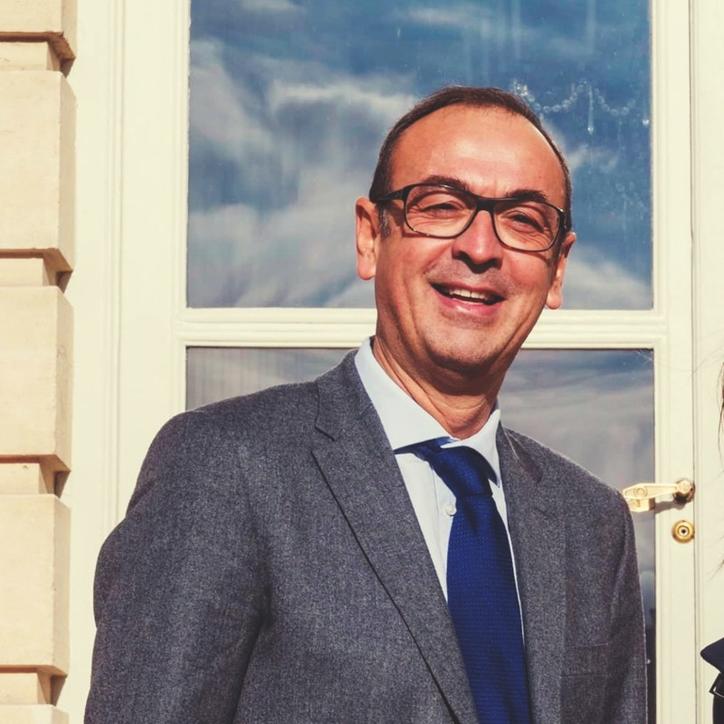
Welcoming international students to France: proposals from Vincent Ledoux, a deputy from the Nord department
Welcoming foreign students to France is an increasingly important issue for the attractiveness of French higher education. Vincent Ledoux, deputy from the Nord department and special rapporteur for the government’s external action budget, offered new ideas to strengthen this attractiveness.
En signant une tribune le 2 juin dernier dans le magazine Le Point, Vincent Ledoux, député du Nord, rappelle l’importance de l’enjeu, aussi bien économique que culturel, que représente l’attractivité universitaire de la France. Ce sont les mêmes arguments pour renforcer cette attractivité que le député a développé devant la Commission d’évaluation des politiques publiques à l'Assemblée nationale, où l’élu est intervenu en tant que Rapporteur spécial du budget Action extérieure de l’Etat pour exposer son rapport sur " La contribution du Quai d’Orsay à la politique visant à attirer les étudiants étrangers en France ".
Un contexte international plus difficile
Vincent Ledoux part du constat que la mobilité des étudiants internationaux est devenue « un terrain de concurrence entre États, qui l'ont bien identifiée comme un atout pour leurs universités et leurs économies, mais aussi comme un moyen de véhiculer des valeurs et de nouer des liens durables entre sociétés ».
Mais les derniers chiffres disponibles (avant pandémie) ne sont pas pour autant si optimistes pour la France. Pour l'année 2019-2020, sur les 370 000 étudiants étrangers en France, 290 000 étaient en mobilités internationales. Pourtant, souligne le rapporteur, « en 10 ans, ces mobilités ont augmenté de 68 % sur le plan mondial, mais de seulement 32 % en France ». Ainsi, poursuit-il, « longtemps troisième pays d'accueil derrière les Etats-Unis et le Royaume-Uni, la France est passée au sixième rang, derrière l'Australie, l'Allemagne et la Russie, et talonnée par le Canada ».
Plusieurs outils pour relever le défi
Pour l’élu du Nord, « notre attractivité internationale dépend bien sûr en premier lieu de nos universités et de nos grandes écoles, mais aussi de l'Action extérieure de l'État » à travers plusieurs outils parmi lesquels :
- les services de coopération des ambassades « avec désormais seulement 90 effectifs de coopérants universitaires et surtout 259 Espaces Campus France dans 127 pays » pour lesquels le député « recommande à l'État de stabiliser les effectifs de coopérants » et « de bien veiller à l'adéquation entre les profils et les enjeux opérationnels » ;
- la plateforme Études en France « qui facilite les inscriptions » et pour laquelle Vincent Ledoux « suggère de mutualiser une partie des recettes liées à son utilisation, qui sont passées, en 3 ans, de 11 à 20 millions d'euros, et qui vont continuer de croître » ;
- l'établissement public industriel et commercial Campus France « qui résulte d'une fusion réussie entre trois structures préexistantes. Campus France est compétent à la fois pour promouvoir l'enseignement supérieur français à l'étranger et pour gérer des programmes de mobilités et de bourses » ;
- le financement de bourses d'études. Celui-ci, précise le rapporteur, « est réparti entre les 30 millions d'euros de bourses attribuées par les postes diplomatiques et les 25 millions d'euros de bourses sur programmes centraux thématiques comme les programmes Eiffel ou Make Our Planet Great Again. La dépense s'établit donc autour de 55 millions d'euros depuis 2017 ».
De nouvelles approches pour l’octroi de bourses
Mais, poursuit l’élu sur ce sujet, « la stagnation des crédits pour bourses ces dernières années a des effets ambigus, car il y a indéniablement eu un effort qualitatif pour éviter le saupoudrage et cibler les formations d'excellence ». Cependant, poursuit-il, « on ne peut nier qu'il y a aussi un enjeu quantitatif, car les bourses sont un produit d'appel et elles fidélisent les meilleurs candidats qui sont par ailleurs fortement sollicités par nos concurrents ». Et le député de préconiser de « réexaminer les modalités d'attribution de bourses par les postes diplomatiques ».
Afin d'apprécier justement « l'efficacité des bourses », Vincent Ledoux propose également de créer « un indicateur de suivi du taux de réussite des étudiants étrangers boursiers par rapport aux autres étudiants en mobilité ». Pour le député, cela nécessite de « rénover la stratégie de Campus France envers les anciens étudiants étrangers, avec un suivi des parcours professionnels et un vrai rôle d'animation des postes diplomatiques dans la plateforme des anciens élèves France Alumni ».
Des objectifs stratégiques plus clairs
Pour mieux identifier les objectifs stratégiques, le député revient sur le plan " Bienvenue en France ", présenté à l'automne 2018, qui prévoyait « d'attirer 500 000 étudiants étrangers en 2027 » et qui « est sans doute hors de portée ». Mais ce plan, poursuit le dépuré, « a permis de commencer à améliorer la qualité matérielle de l'accueil dans les universités, avec une labellisation par Campus France, et de simplifier les procédures de visas et de titres de séjour ».
Ce plan autorise en outre les universités « à fixer des droits d'inscription différenciés pour les étudiants extra-européens afin de dégager de nouvelles ressources ». Pour le député, « il s'agit désormais de ne pas perdre de vue la priorité africaine de la France en matière de mobilités étudiantes, bien identifiée par le président de la République ».
L'Afrique, une priorité
Selon Vincent Ledoux, il faut en effet « être bien conscient que les flux supplémentaires d'étudiants étrangers en France proviendront majoritairement d'Afrique, à rebours de certaines représentations qui opposent encore les échanges traditionnels avec l'Afrique aux mobilités modernes qui proviendraient d'autres pays émergents et qu'il faudrait favoriser, comme l'Inde ou l'Asie Pacifique ».
Il faut donc assumer, poursuit le député, « que l'Afrique fournira, dans les prochaines années, la grande majorité des étudiants étrangers en mobilité en France. Ces mobilités devront être gérées en coopération avec les pays d'origine, afin qu'il y ait une cohérence entre leurs besoins et les parcours d'études en France ». Bref, conclut-il, « l'attractivité universitaire de la France est un enjeu d'échelle mondiale, mais le lien à l'Afrique, elle-même pleinement inscrite dans la globalisation, en est un révélateur et peut en être le catalyseur etc.».
Recommended News




















































